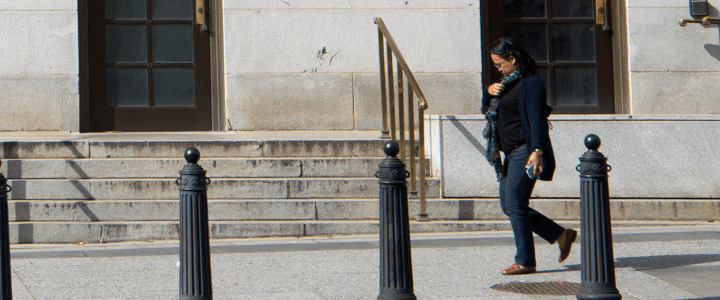The bizarre case of Reality Winner is only the latest in a long line of federal employees and contractors accused of illegally leaking classified information to the media. Ms. Winner’s case is now making its way through the courts, and she’ll likely do some serious prison time as a result. But for every Reality Winner or Chelsea Manning of the world, there are plenty of others who never get caught. One needs only to consume a dose of American media – with its abundance of “anonymous sources” – to figure that out.
Law enforcement’s poor track record in catching leakers, combined with especially strong First Amendment protections for reporters, work together to create the environment necessary for leaks to occur. Few serious people would favor curtailing freedom of the press – this author certainly doesn’t – but there is an interesting dichotomy that arises as a result of special protections for the media: the leaker can be prosecuted, but the reporter who receives the information and the media outlet that publishes it are generally immune from liability.
Given the serious criminal penalties for those who do get caught, one must wonder why leakers take the risk. Some, like Winner and Manning, apparently have an axe to grind. Others, like Edward Snowden, purport to be whistle-blowers who are acting as vigilante guardians of the Constitution. And still others, like some of the hyper-partisans in Washington, D.C., seem to view anonymous leaks as a way to score political points.
But I have a theory about another sub-set of leakers who receive less attention: those who are really trying to do the right thing by exposing misconduct, waste, or abuse in government – yet who fail to understand the legal difference between lawful, protected whistle-blower activity and leaking.
This is a complicated area of the law, and the government doesn’t do itself any favors by failing to adequately educate its own workforce on how to report malfeasance. So, if you ever find yourself in a situation at work where you think, “this isn’t right, but I don’t know who to tell”, you might be exactly the type of person who unwittingly becomes a leaker.
Here are a few key tips to prevent that from occurring:
who the information is reported to matters
The major difference between protected whistle-blowing activity and leaking is that a whistleblower reports the information to federal officials designated by statute to receive it, whereas a leaker reports the information to someone who is not authorized to receive it (i.e. the media or an uncleared individual). Designated federal officials generally include the individual’s supervisor, agency head, Office of Inspector General, Office of Special Counsel, and Congress.
What you are reporting is also critical. Allegations of illegal conduct, fraud, waste, abuse, or gross mismanagement by government officials all constitute protected whistle-blower disclosures, although for the purpose of this article we’re focusing only on those allegations which may incorporate classified information.
On the other hand, a mere disagreement with an otherwise legal and soundly run federal program or policy does not form the basis for a whistle-blower disclosure.
The Requirement of “A Reasonable Belief”
In order to garner the protection of the law, it is crucial that a whistleblower have a reasonable belief in the accuracy of the information s/he is reporting. A reasonable basis is that which an ordinary person of average intelligence and sound mind would believe. Thus, although what you believe, as an individual, is generally subjective, the law assesses “reasonableness” by comparing that belief to what other people might think about the same set of facts and circumstances. A belief is not generally considered “reasonable” unless there is some articulatable factual basis for it; mere rumor or innuendo is insufficient.
Protections Against Retaliation
Assuming that you’ve reported protected information to an authorized recipient, the Whistleblower Protection Act and Presidential Policy Directive 19 should protect you from illegal retaliation by anyone in government who is angered by your report. If you believe that you are being retaliated against for a protected disclosure, contact your agency’s Inspector General’s office and/or the U.S. Office of Special Counsel.
As with anything that has potential legal ramifications, a bit of knowledge is a dangerous thing. If you remain unsure as to whether a course of action you are contemplating will be viewed as protected whistleblower activity or illegal leaking, seek out qualified legal counsel for an assessment. Once classified information is placed into the public domain, the damage to U.S. national security is impossible to roll back.
This article is intended as general information only and should not be construed as legal advice. Consult an attorney regarding your specific situation.




